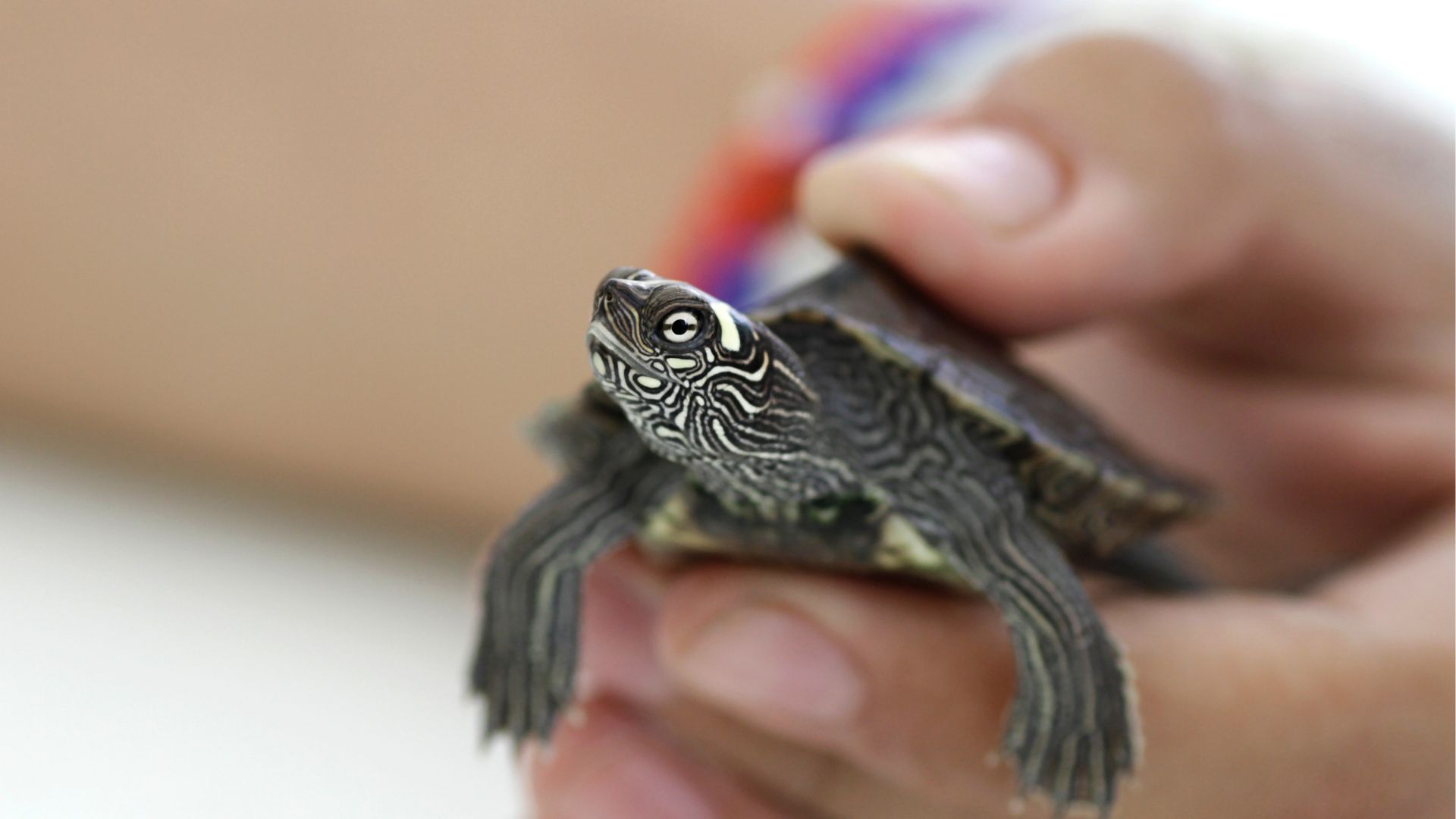Salmonella linked to turtles sickens 26 and leads to 9 hospitalizations, CDC warns
More than two dozen people have gotten sick with Salmonella, likely due to handling illegally sold pet turtles.

An outbreak of Salmonella infections linked to small turtles has sickened 26 people across 11 states.
The sale of turtles with shells shorter than 4 inches (10.16 centimeters) has been banned in the U.S. since 1975, according to the Centers for Disease Control and Prevention (CDC). That's because tiny turtles are the most common culprits in Salmonella outbreaks linked to pet reptiles. The pets pose a particular risk to children, who are likely to handle the turtles and get sick.
Nonetheless, tiny turtles are still sold illegally online and at stores, flea markets and roadside stands.
Now, the CDC is investigating an outbreak of Salmonella caused by two strains of the disease-causing bacteria and likely linked to small pet turtles, the agency announced Friday (Aug. 18). People affected by the outbreak got sick between Oct. 27, 2022, and July 16, 2023. The true number of people affected is likely higher than reported, the CDC noted.
Related: Salmonella outbreak in 4 states linked to ground beef, CDC warns
Of 20 people interviewed by state and local health officials, 16 reported contact with pet turtles in the week before they got sick. Most also reported the pet's size and said they'd had contact with a turtle whose shell was less than 4 inches long.
In addition, Salmonella samples from the sick individuals were very closely related, genetically. This suggests they all got sick after handling the same type of animal, the CDC noted.
Get the world’s most fascinating discoveries delivered straight to your inbox.
Of 13 people asked, six reported buying their pet turtle online, five said they bought the animal at a store and one reported buying their turtle at a reptile show. "Investigators are working to determine if there is a common source of turtles," the CDC announcement states.
Even healthy-looking turtles can carry Salmonella. The animals pass the germs in their stool, which can then contaminate the turtles' bodies, tank water and objects in their environment. Humans can get infected after touching infected animals, their feces or their environments and then touching their own mouths or food.
"Don't kiss or snuggle your turtle, and don't eat or drink around it," the CDC advisory states.
Salmonella infection, or salmonellosis, can cause symptoms of fever, stomach cramps and bloody diarrhea. In rare cases, the infection can spread from the gut to the bloodstream and other parts of the body, like the joints or the fluid around the spinal cord and brain.
Symptoms of salmonellosis usually appear six hours to six days after exposure to the bacteria and last four to seven days, but sometimes they don't emerge for several weeks and last longer. Most people recover without treatment, but those with severe cases are given antibiotics to kill the bacteria. People may also require fluids to counter dehydration caused by diarrhea.
The CDC's investigation page offers tips for how to safely purchase and handle pet turtles, and the agency also advises people to call a health care provider right away if they have severe symptoms of Salmonella.

Nicoletta Lanese is the health channel editor at Live Science and was previously a news editor and staff writer at the site. She holds a graduate certificate in science communication from UC Santa Cruz and degrees in neuroscience and dance from the University of Florida. Her work has appeared in The Scientist, Science News, the Mercury News, Mongabay and Stanford Medicine Magazine, among other outlets. Based in NYC, she also remains heavily involved in dance and performs in local choreographers' work.
 Live Science Plus
Live Science Plus





